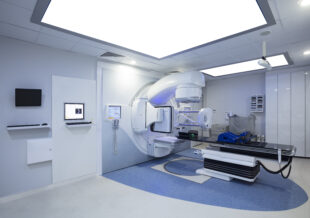
Last time I wrote was just before we headed to Washington DC for the 25th Session of the International Medical Device Regulators Forum (IMDRF), hosted by the US Food and Drug Administration (FDA). The first two days were a workshop held with the Global Diagnostic Imaging, Healthcare IT and Radiation Therapy Trade Association (DITTA) and the Global Medical Technology Alliance (GMTA), followed by an open stakeholder forum on the third day. The final two days were when the IMDRF Management Committee met in closed session. If you were not able to join, either in person or online, slides for the event are available here.
As set out in the published outcome statement, the workshop was dedicated to discussions on reliance, ie the leveraging of regulatory assessments performed by other competent and trusted authorities. This is helpful for companies operating in a global market, but vital for safe patient access to medicines and medical devices in more than 70% of countries[i] in the world where national regulatory systems are weak.
Even for patients who live in countries with mature regulatory systems, the lack of reliance can lead to access challenges for them. One conference attendee asked the assembled regulators why, as an American living in Europe, she had to fly home every three months to pick up her medication. As regulators we need to be able to answer that.
Decisions made by the IMDRF Management Committee are set out in the annex to the outcome statement. I was particularly happy that the proposal for a document on AI life cycle management was approved. This is a new work item from the Artificial Intelligence/Machine Learning-enabled (AI/ML) Working Group, co-chaired by us and the US FDA, and builds on our collaborations with the USA and Canada on pre-determined change control plans.
On joining the forum, we also noted that there were no active working groups dedicated to the vital and growing area of In Vitro Diagnostics (IVDs). So the agreement, following work between the UK and European Union (EU), to establish a working group to update and streamline Global Harmonization Task Force (GHTF) documents on clinical evidence for IVDs, was very welcome. We will co-chair the working group and I am grateful to my team and our international partners for their hard work to get these proposals over the line.
We continue to develop our own international recognition framework which we have committed to publish in outline soon. What has been incredibly helpful in developing our thinking is working through example products which have approval from another regulator, for instance US FDA, but have not gone through the process for a UKCA or CE mark. To be clear, this work is not providing those products with market access in the UK, but is helping us determine how that access could be granted in the future.
The companies involved have approached us voluntarily, both directly and via their trade associations. So far we are working with four companies who are all large multinationals. We would very much like to hear from smaller companies, particularly where their products might encompass software either as a medical device or as an IVD, who would be interested in accessing the UK market but who have targeted another market as their first launch country. We are happy to work under appropriate confidentiality agreements. There is a short window of opportunity if you would like to work with us on this important project. Please get in touch at info@mhra.gov.uk no later than 2 May, if you fit the criteria, although please note we can only work with up to 10 organisations and we will select products based on needing a range of scenarios to explore and if necessary, on a first come first served basis.
We are fast approaching a key milestone on our roadmap, and that is the laying in Parliament of the new regulations for post market surveillance. Should these pass successfully through parliamentary debates and be put into law, they will come into force six months later and apply to all devices placed on the market in Great Britain after that date. The draft regulations were published last year on the World Trade Organization website. We were grateful to those who provided feedback. We will be writing formally to those who contributed before the statutory instrument is laid.
For the following statutory instrument, the future core regulations, we remain on track to deliver our next round of stakeholder engagement sessions in the next couple of months, as set out in the roadmap. These will cover conformity assessments, clinical investigations and obligations of economic operators including quality management systems and qualified persons. We are intending to do these as Trusted Advisor Group (TAG) sessions in June and July. Last month much of our focus has been on Health Institution Exemptions, speaking not only to industry but also to healthcare professionals. The openness the TAG sessions facilitate has given us some vital feedback on how the current rules are working in practice, what the future core regulations should cover, and have also given us food for thought for our future enhancement regulations to follow.
Also in line with our roadmap, we are planning to launch AI Airlock in the coming weeks as well as publish our plans for IVDs and our statement of policy intent for international recognition. More on that in my next blog.